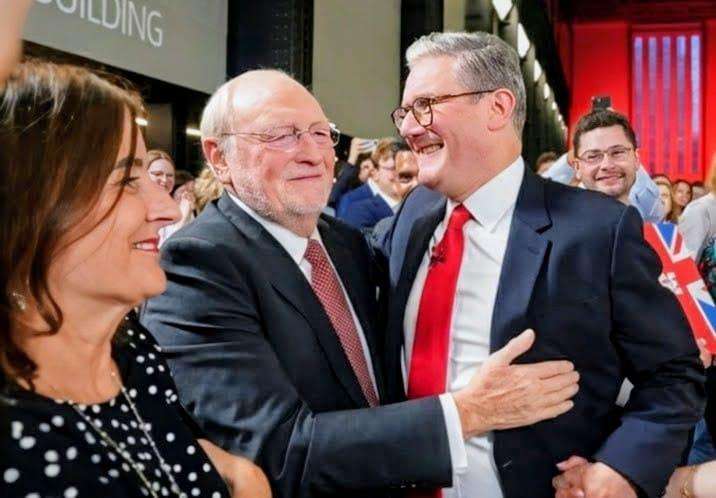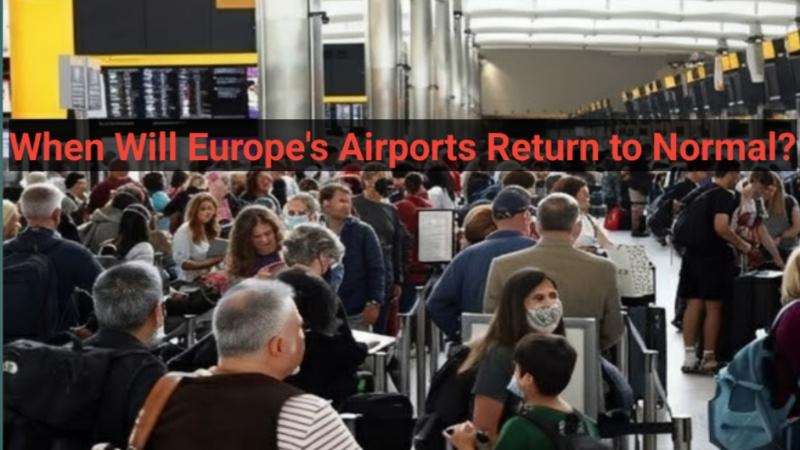The political and economic landscape of the United Kingdom is at a crossroads, with a prominent voice from the past, former Labour leader Neil Kinnock, reigniting a debate many had considered settled. Lord Kinnock has issued a powerful and provocative call for the UK to consider rejoining the European Union, arguing that it is the most effective solution to the nation's two most pressing challenges: a stagnant economy and the escalating small boats crisis.
Lord Kinnock's intervention comes at a time of acute pressure for the current Labour government. The UK's economic outlook remains challenging, with experts warning that Chancellor Rachel Reeves may have to raise taxes in the upcoming November Budget to meet her fiscal rules. The Office for Budget Responsibility has long estimated that Brexit will reduce the UK's long-run productivity by 4%, and a recent YouGov poll shows that a majority of the British public now believe leaving the EU was a mistake. Lord Kinnock’s central economic argument is that re-joining the EU, or at the very least the single market, could inject a significant boost into the economy, potentially adding 5% to GDP and reversing an annual £100 billion deficit, which translates to a £40 billion loss in tax revenue for the government.
However, the path to re-entry is far from straightforward. While recent polls suggest a majority of Britons now support rejoining the EU, Prime Minister Keir Starmer and his government have maintained a firm stance against it. Senior ministers, including the minister responsible for EU relations, Nick Thomas-Symonds, have stated that they do not see the UK re-entering the bloc "in his lifetime." This position is driven by a desire to "put the battles of the past behind them" and focus on a new, more pragmatic relationship with Brussels. The Labour government has been making incremental progress on this front, with recent high-level talks and a new UK-EU summit planned for early 2025.
Beyond the economy, Lord Kinnock argues that rejoining the EU would be the single most effective way to tackle the small boats crisis. He specifically points to the loss of the Dublin Protocol, a key EU mechanism that allowed member states to return asylum seekers to the country where they first entered the bloc. The UK's departure from this protocol in 2021, he argues, has removed the primary deterrent for irregular migration, as migrants know they cannot be easily returned. The situation has indeed worsened, with small boat crossings reaching record highs, and the government's new "one-in, one-out" returns deal with France, while a step forward, has proven difficult to implement with a slew of legal challenges. The Home Office has stated that the first returns under this new treaty have taken place, but its long-term effectiveness remains a major question.
The broader context for this debate is a paradox in UK migration. Despite Brexit's promise of "taking back control" of borders, net migration has increased significantly since the UK left the EU, primarily due to the liberalization of visa rules for non-EU citizens, including humanitarian visas for people from Ukraine and Hong Kong. The new points-based system treats EU and non-EU citizens equally, but the data shows a sharp drop in EU immigration and a significant rise in non-EU arrivals. This has led to a situation where the UK has both a record number of regular migrants and a growing crisis of irregular migration.
The economic situation in the wider European Union is also a key factor in the re-joining debate. While Lord Kinnock frames the UK as "dying," the reality is more nuanced. The EU economy is facing a modest growth outlook, with a projected GDP growth of around 0.9% in 2025. While not a boom, this is a picture of stability, not collapse. The idea of a "dying" Europe is often a rhetorical device used by Eurosceptics, but the data suggests a resilient economic bloc.
In conclusion, while Lord Kinnock's plea for rejoining the EU is a powerful statement on the perceived failures of Brexit, it runs counter to the current government's policy and public-facing strategy. The debate over re-entry is no longer just about economics; it's also about sovereignty, migration control, and the UK's place in the world. For the UK to rejoin, a national consensus would need to emerge, likely requiring a new referendum, and negotiations with the EU would be complex. The bloc itself has made it clear that a future UK membership would likely not include the opt-outs and special arrangements the country previously enjoyed. Lord Kinnock's son, Steve Kinnock, has offered a more incremental approach of rejoining the European Free Trade Association (EFTA), a proposal that would put the UK back in the single market and customs union without full EU membership. This may represent a more realistic compromise, but for now, the Labour government is focused on a more subtle "reset" of relations with Brussels, rather than a full-scale reversal of Brexit.








.svg)


